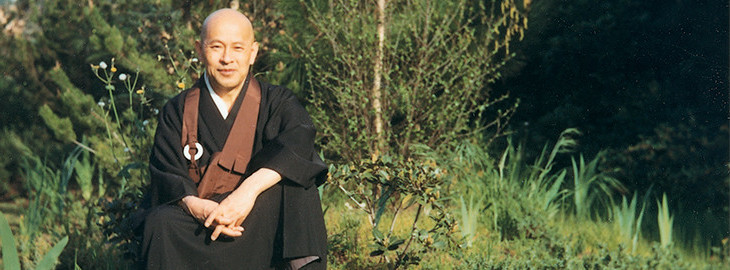 Suzuki Roshi, I’ve been listening to your lectures for years,” a student said during the question and answer time following a lecture, “but I just don’t understand. Could you just please put it in a nutshell? Can you reduce Buddhism to one phrase?”
Suzuki Roshi, I’ve been listening to your lectures for years,” a student said during the question and answer time following a lecture, “but I just don’t understand. Could you just please put it in a nutshell? Can you reduce Buddhism to one phrase?”
Everyone laughed. Suzuki laughed.
“Everything changes,” he said. Then he asked for another question.
Explanation: One of the foremost teachings in Buddhism is that everything in life is impermanent. Suzuki Roshi (Shunryu Suzuki of Zen Mind, Beginner’s Mind) is referring to this impermanence by saying “everything changes”. This is a very deep teaching, but I’ll attempt to sum it up in a way that can be understood and immediately helpful in a few words.
Because it encompasses everything, you can contemplate for hours on end and not realize the full magnitude of the principle of impermanence. You are impermanent, your loved ones are impermanent, your home is impermanent, even our planet is impermanent.
Why is this important? Because it teaches us that grasping onto things is one of the major reasons as to why we suffer. We need to live being aware of the ever-changing nature of reality and appreciate the present moment. It’s not about letting go, it’s really about not grasping in the first place. If we can learn to live in this way, we can find peace in everyday life.
Non-judgment
Once upon the time there was an old farmer who had worked his crops for many years. One day his horse ran away. Upon hearing the news, his neighbors came to visit. “Such bad luck,” they said sympathetically.
“Maybe,” the farmer replied.
The next morning the horse returned, bringing with it three other wild horses. “How wonderful,” the neighbors exclaimed.
“Maybe,” replied the old man.
The following day, his son tried to ride one of the untamed horses, was thrown, and broke his leg. The neighbors again came to offer their sympathy on his misfortune.
“Maybe,” answered the farmer.
The day after, military officials came to the village to draft young men into the army. Seeing that the son’s leg was broken, they passed him by. The neighbors congratulated the farmer on how well things had turned out.
“Maybe,” said the farmer.
Explanation: The farmer is practicing non-judgment. He understands the true nature of life, that you can’t judge any event as an “end” in a way. Our life doesn’t play out like a work of fiction. There aren’t definite breaks that separate one moment versus another, and there isn’t a perfectly formulated end which everything builds to.
There’s always tomorrow. And whether the day was good or bad, there are a million effects which can arise from one event. Good and bad are interconnected. They are, in fact, two sides of the same coin. If things seem perfect, they aren’t. If it seems like it’s Armageddon in your corner of the world, it’s not. Things can change in an instant, at all times. And they will at some point or another.
This doesn’t mean that we can’t be happy. On the contrary, it means that we need to realize this truth and live in a way that we’re constantly aware of it in order to find peace and happiness. Don’t let this change the way you live too much just yet, though. For now, just think on it, observe your life through the lens of this infinitely co-arising universe. This act in itself can bring you a great sense of peace.
Excerpted from buddhaimonia.com/blog/zen-stories-important-life-lessons







